Father Michael Doyle, who died earlier this month at his parish house in Camden, New Jersey, infused his Christianity with his goodness. That goodness showed us what it means to live a life of faith.
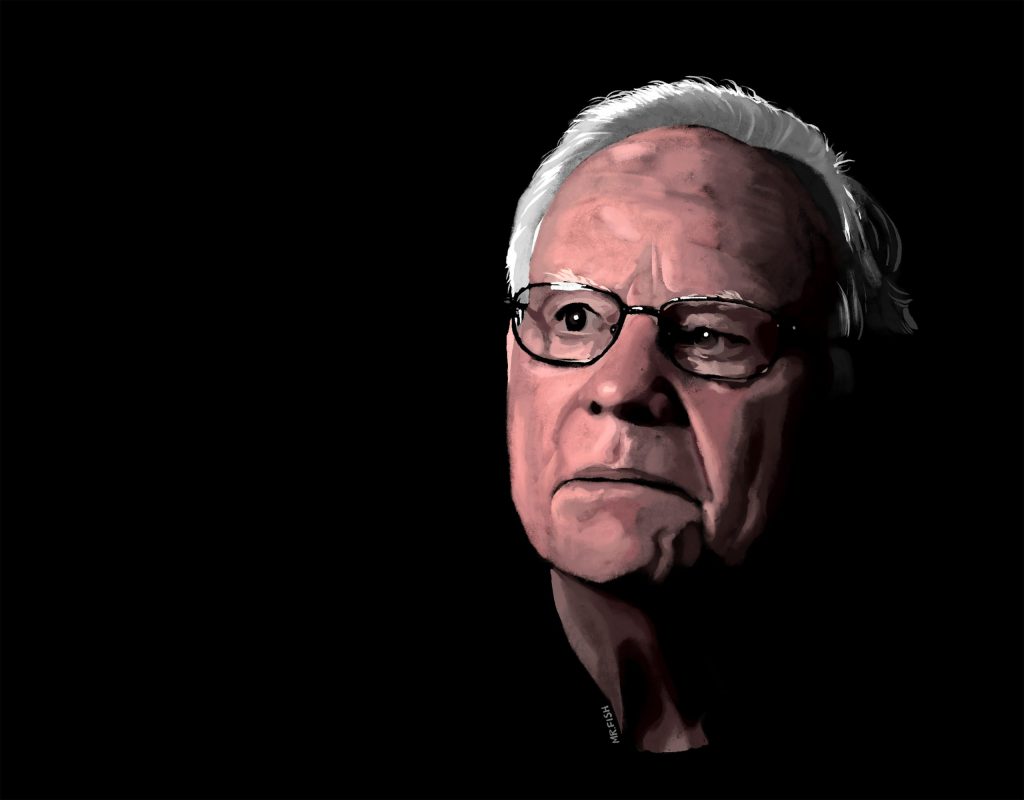
Father Michael Doyle – by Mr. Fish.
By Chris Hedges
ScheerPost.com
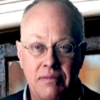 During the two years the cartoonist Joe Sacco and I spent on our book Days of Destruction, Days of Revolt, written out of the poorest pockets of America, we invariably encountered heroic men and women who — against overwhelming odds — rose up to fight lonely and often losing battles on behalf of the oppressed.
During the two years the cartoonist Joe Sacco and I spent on our book Days of Destruction, Days of Revolt, written out of the poorest pockets of America, we invariably encountered heroic men and women who — against overwhelming odds — rose up to fight lonely and often losing battles on behalf of the oppressed.
Bill Means, Charlie Abourezk and Leonard Crow Dog in Pine Ridge, South Dakota. Larry Gibson and Judy Bonds in the coal fields of West Virginia. Lucas Benitez, Laura Germano and Greg Abbot in the produce fields of Florida. The men and women in Zuccotti Park during the Occupy Wall Street movement.
When set against the crushing poverty, environmental degradation, corporate abuse and despair they opposed, the victories they amassed were often minuscule. And yet, to them, and to the people they were able to support, these victories were immense.
They kept alive kindness, community, decency, hope and justice. They provided another way to speak about the world. They reminded us that our primary task in life is to care for others.
These moral giants, by their very presence and steadfast refusal to surrender, damned the avarice, lust for power, hedonism and violence that define corporate culture.
 Joe and I met Father Michael Doyle in Camden, New Jersey, one of the poorest cities and most dangerous in the United States. Father Doyle, an Irish priest and poet with ruddy cheeks and snow-white hair, ran the Sacred Heart Church in one of the city’s bleakest corners.
Joe and I met Father Michael Doyle in Camden, New Jersey, one of the poorest cities and most dangerous in the United States. Father Doyle, an Irish priest and poet with ruddy cheeks and snow-white hair, ran the Sacred Heart Church in one of the city’s bleakest corners.
He died at the age of 88 on Nov. 4 in the church’s parish house.
“I haven’t heard God speak in a burning bush, but I hear Him speak from the burning issues of the day, and they are all in Camden,” he told us.
Camden is desolate, with gutted and abandoned row houses, boarded-up storefronts, the empty shells of windowless brick factories and the skeletal remains of old gas stations.
Weed-choked vacant lots are filled with garbage, old tires and rusted appliances. Cemeteries are overgrown. Open-air drug markets are divided up among gangs such as the Bloods, the Latin Kings, Los Nietos and MS-13 or Mara Salvatrucha.
Knots of young Hispanic or African-American men dressed in black leather jackets and occasionally seen flipping through wads of cash, sell weed, dope and crack to clients, many of whom drive in from the suburbs.
The drug trade is perhaps the city’s only thriving business. A weapon, usually stashed behind a trash can, in the grass or on a porch, is never more than a few feet away from the dealers. Camden is awash in guns.
Camden sits on the edge of the Delaware River facing the Philadelphia skyline, with scrap yards and a vast sewage treatment plant that fouls the air. An elevated multilane highway slices through the heart of the city allowing commuters to pass in and out of Philadelphia without seeing the misery below.
“At Ferry and Sixth, we stopped at one of Camden’s 150 open air drug markets,” Father Doyle wrote in one of his newsletters:
“Then down Sixth to Viola where Kevin Walls was shot a few months ago. Where his mother bent beside her bleeding son and tried to say the 23rd Psalm in his ear. Though I walk in the valley of death, I fear not evil. There’s plenty of fear at 6th and Viola. There now the most pathetic of urban shrines. His name scrawled on an abandoned wall. Dozens of beer bottles arranged for the glint and glow of a burnt out candle. A teddy bear soiled and wet on an abandoned step. Soft wishes in a hard hearted-place.”
“Sometimes I see men and women hardened by time and all washed out like the hills of Appalachia and I wonder what were their first few years of life and what happened in the little places where they played,” he wrote in another letter.
“Right here on Broadway, on the blocks above and below Sacred Heart, the prostitutes adorn every corner in all weather. They are like hardy fishermen casting their lines in the constant stream of traffic. The windowless walls of gutted houses gape down like skeletons with holes for eyes on a tragic human scene. At 3:15 PM, Anna May carefully guides little children with Sacred Heart uniforms across the street when the light changes. May God’s holy angels always get them safely across the street and off it before they harden and crack like the pavements and the prostitutes and the failed plans for urban renewal.”
You can listen to Martin Sheen read from Father Doyle’s letters in the documentary Poet of Poverty.
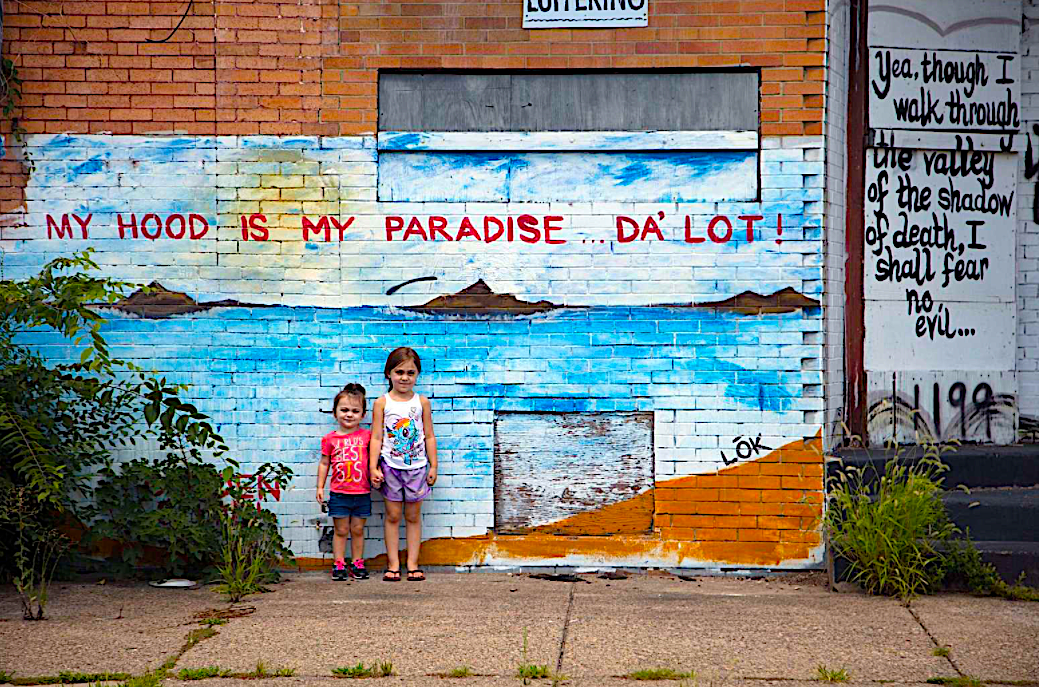
Little girls on a street in Camden, New Jersey, 2017. (Carol M. Highsmith’s America Project, Library of Congress)
Father Doyle raised the funds to restore Sacred Heart Church, built at the end of the 19th century, and its murals illustrating the Ascension, the baptism of Jesus by John, the marriage of Mary and Joseph and the return of the prodigal son.
In 1984, he founded Heart of Camden, a nonprofit community development corporation that has renovated 250 homes for local families. He sustained the parish’s K-8 school, which the diocese tried to shut down, getting thousands of donors and supporters to provide $1 million a year.
He was one of the driving forces behind the creation of the Waterfront South Theatre, the Nick Virgilio Writers House, the Camden FireWorks arts center and the Camden Shipyard & Maritime Museum.
Service for the Victims of Gun Violence
Every year, he held a service for the victims of gun violence in the city, reading aloud from the pulpit the names of those killed and the type of weapons used to cut short their lives, as weeping family members, the name of those they lost displayed on a sign around their necks, came forward to light a memorial candle.
He started community gardens and opened a medical clinic. He arranged for Mother Teresa to visit the city. He relentlessly defied the destructive forces around him, determined to nurture life, even if it was only a “fragile blade of grass poking up between the cracked cement.”
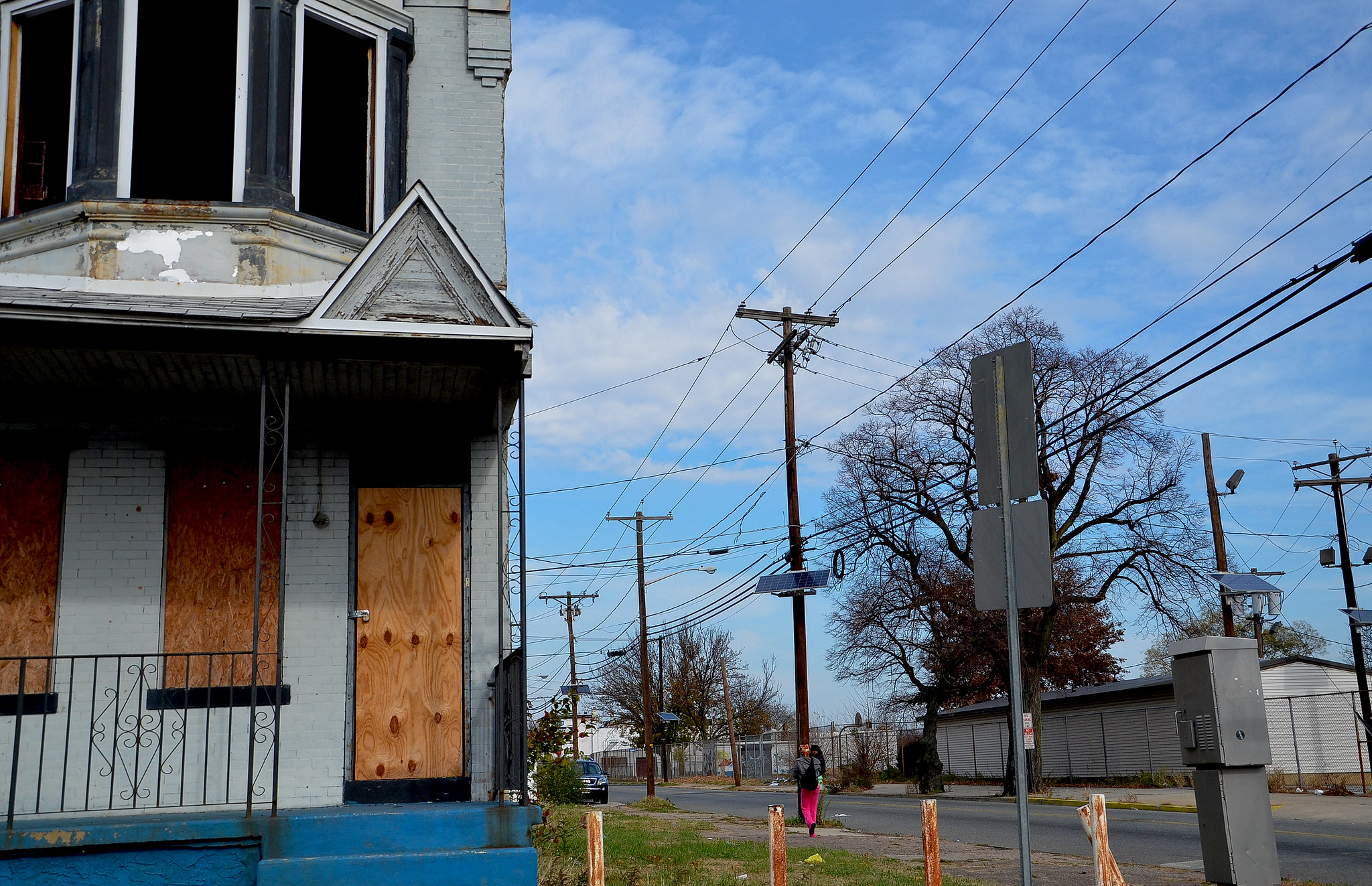
North Camden, New Jersey, 2011. (Blake Bolinger, Flickr, CC BY 2.0)
“When I look at all of Camden, I am paralyzed,” he said during one of my many visits to the rectory. “But it’s like a child at the beach. You give them a shovel. They’ll make a hole and a hill and work at it all day. They’ll have a grand time. And then the tide comes in and the waves bring down the little hill. The little thing is trampled on. But the tide doesn’t take what happened, what they were doing, what’s inside. That’s preserved forever.”
Father Doyle was a member of the Camden 28, a group of left-wing Catholics and anti-war activists who, in 1971, planned and executed a raid to destroy draft files on the Camden draft board. The defendants were arrested but acquitted when it was found that the FBI, which had an informant in the group, had provided tools for the break-in and facilitated the logistics.
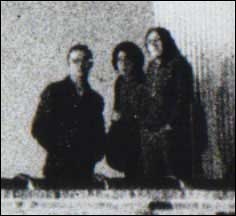
Clandestine F.B.I. surveillance photograph of the “Camden 28” in Camden, New Jersey, in the early hours of Aug, 22, 1971. This photograph was placed into evidence by the prosecution at the trial of the Camden 28 in 1973. (Public Domain, Wikimedia Commons)
“What do you do when a child is on fire in a war that was a mistake and you can’t extinguish the flame — the napalm flame — with water or anything else?” he said in his closing statement at the trial.
“What do you do about that? What do you do with an old man whose bones are splintered by anti-personnel weapons in a war that was a mistake? We have no answer to that. There is no answer in the law for a child on fire in a war that was a mistake.”
He organized a memorial service for 300 young men from South Jersey killed in the Vietnam War. Years later, he would still carry a card with the name of one of those killed, Lawrence J. Virgilio from Camden.
The bishops were not pleased. He was fired from Holy Spirit High School near Atlantic City where he taught and transferred to Sacred Heart, a run-down and neglected parish, in 1974. He had to chop firewood to heat the church. It was meant to be a punishment, a demotion, but Father Doyle saw it as the greatest blessing of his life.
“I’ve failed…nicely,” he joked.
He called Camden “a concentration camp for the poor” and saw the city as a template for all that had gone wrong in America.
He likened the suffering around him to the crucified Christ, nailed to “the cross of awfully polluted air” and “the broken sidewalks, the broken lives, the ugly scenes that wail for beautification, the dilapidated houses that must be restored for the children.”
“Camden is a casualty of capitalism,” he said as we sat drinking tea one afternoon.
“It’s what falls off the truck and can’t get back on the truck. It is a sad stage we are in. There is a meanness that has raised its ugly head in the soul of America. Bobby Kennedy, even Lyndon Johnson, spoke about the poor. Now you can’t say the word poor and get elected. Let the poor suffer. They’re not important. Let the train roll over them.”
“Today’s a very hard time to be poor,” he went on.
“Because you know you’re poor. You hear people my age get up and say, ‘We were poor. We put cardboard in our shoes’. But we didn’t know we were poor. Today you do. And how do you know you’re poor? Your television shows you you’re poor. So it’s very easy to build up anger in, say, a high-voltage kid of 17. He knows he’s poor. He looks at the TV. ‘All these people have everything. I have nothing’. And so he’s very angry. This is violence.
I’m not talking about a violent show. I’m talking about the violence that rises out of the marketing that shows the kid what he could have. This creates a huge anger that explodes, easily. That I discovered very quickly when I came to Camden. The anger is so near the surface. You rub it and it explodes. There’s no respect for you if you have no money. The constant assault of the marketers is never-ending.”
“I grew up in Ireland,” he went on.
“We had the songs of our struggle. It was clear who we were struggling against. It was the money crowd. But people here can’t see the enemy. You can’t challenge what you can’t see. Greed, prejudice and injustice, you can’t get at it. There’s no head. There’s no clarity. So you take it out on your neighbor. It’s horrendous what people do.”
He saw the United States as cursed by the war industry and American militarism, a curse that would doom it. The billions diverted to endless wars meant those around him went hungry.
He prayed with his congregation that America will one day “come to the front lines of our cities to protect our children, not with guns, but hammers and saws and jobs and tools of transformation.”
[Related: The Poverty of US Politics]
“A child in Camden could teach the proud missile makers a lesson,” he said. “‘Take my hand,’ the little Camden child says, ‘and walk with me. Walk my streets to school. Will your bombs save me? If you want to defend me, come and live on my block.’”
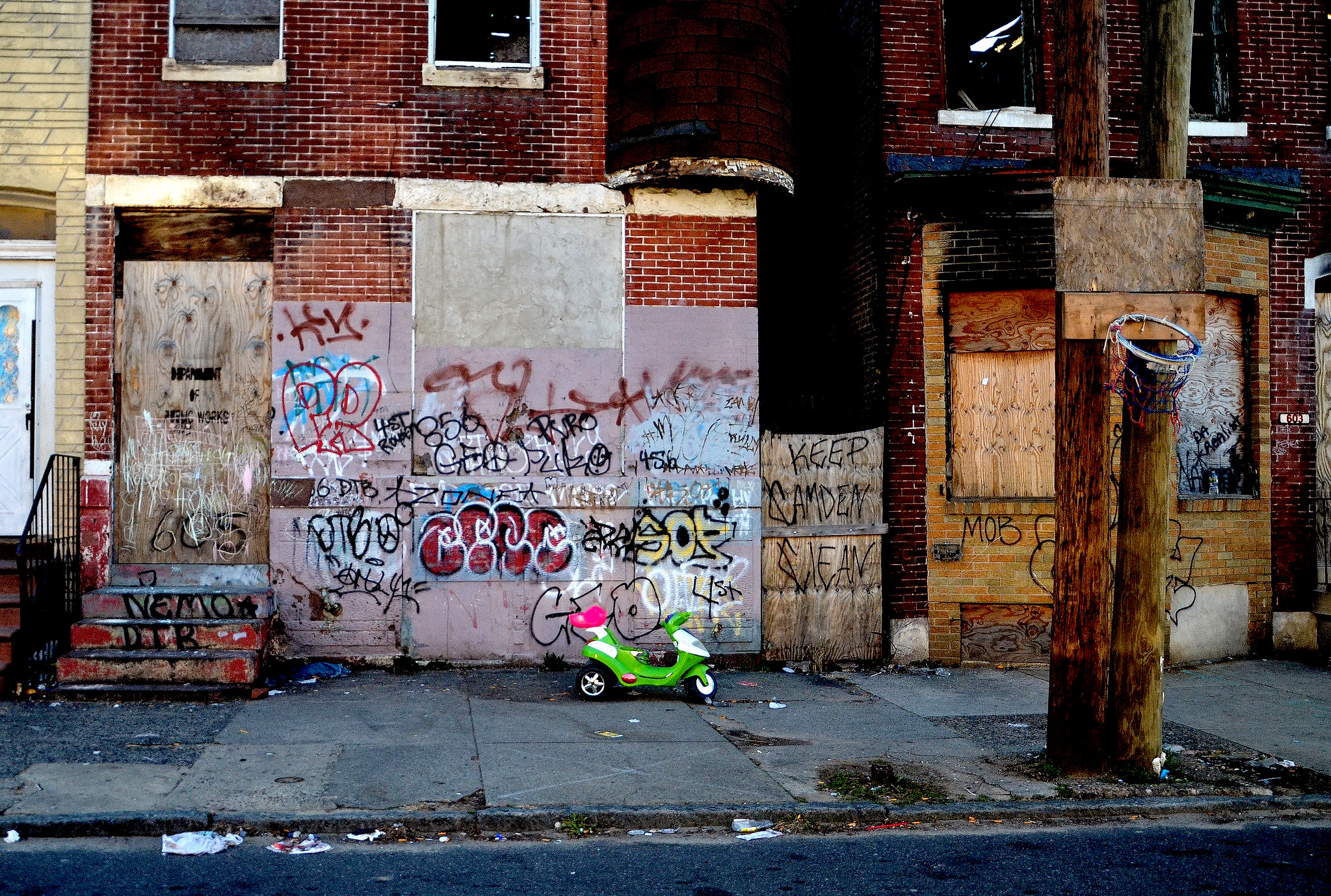
Camden, New Jersey, 2011. (Blake Bolinger, Flickr, CC BY 2.0)
He knew this was the end of the American empire, but he did not understand why it had to go out with such cruelty. What kind of a country, he asked, allowed people to die or go bankrupt because they were unable to pay for medical care?
“Capitalists shouldn’t be allowed anywhere near the medical industry,” he said. “What they do is evil. Greed is venomous.”
“The history books are littered with the ruins of fallen empires,” he said. “A fellow I knew, a blue-collar fellow, he worked with the navy, had to go over with some work crew to Italy. He sent me a card with a picture of the Colosseum. He wrote, ‘I went to the Colosseum, but all I saw were two cats fighting in the weeds.’ It was, when you think about the mighty Caesars, what ancient Rome had been, quite profound.”
Father Doyle loved literature, especially Irish literature, and poetry, which he wrote and included in his letters. He was close friends with the local poet Nick Virgilio, whose brother he had memorialized years earlier and whose haikus captured the desperation of Camden: the prostituted women knitting baby booties on the bus; sitting alone as he ordered eggs and toast in an undertone on Thanksgiving; the latch key children “exploring the wild on public television”; the frozen body of a drunk found on a winter morning in a cardboard box labeled “Fragile: Do Not Crush”; as well as his lamentations for his older brother killed in Vietnam.
Nick wrote what could be the city’s epithet:
the sack of kittens
sinking in the icy creek
increases the cold
In 1989, Nick died of a heart attack in Washington, D.C., at the taping of an interview for CBS Nightwatch. Father Doyle rode in the hearse that brought Nick’s body back to Camden, the head of his deceased friend thumping softly against the back partition.
He built him a gravestone in the shape of a slender granite podium in Harleigh cemetery, where Walt Whitman, who Father Doyle could quote from memory, is also buried. He had one of Nick’s haiku poems carved on it:
lily:
out of the water…
out of itself
Father Doyle organized and attended a soup kitchen every Saturday where he would sit at the tables with about a hundred people, many of whom were destitute and homeless. He recruited volunteers from the suburbs, most of whom were white, to cook and serve his guests. “You have dignity at a table when you’re sharing food,” he said.
He spoke frequently about death, perhaps because in Camden, it is a daily reality. He loved the story of two old men in Ireland who spent their lives together until one fell deathly ill and told his friend he didn’t think he would be getting up, that he had always known when he started out where he was going, but now he didn’t. “But John,” his friend replied, “when you were coming, you didn’t know where you’re going and didn’t it turn out alright?”
“The same God that was there when you slithered into this world will be there when you slither out of it,” Father Doyle told me.
And yet, no matter how bleak, there were always unexpected flashes of joy and hope, gifts of grace.
“One day God sent a message from of all places Arlington Street, and it brightened up the doorway of my mind,” he wrote.
“On Arlington, in the awful heat, on that Godforsaken street without light or life, ugly, urban decay at levels straining the imagination, seven children were splashing in cascading water like shining wet dolphins in the sun.
Somehow, they had hauled a discarded hot tub from Adventure Spas on Chelton Avenue, opened a fire hydrant and the powerful pressure sent the water upward on an old sheet of plywood into the tub and sent the children into ecstasies of delight in spite of all the awful misery around them…
Nothing could daunt the wild surge of their young lives and hopes. What is it about hope? Does its real inspiration only rise out of the tragic emptiness to take its pure and unsupported stand against all odds?”
These moments of grace sustained him even as he acknowledged that everything he had spent his life fighting for had gotten worse. They affirmed that no matter how bleak the world around us, death and despair do not have the final word.
Time will slowly erode the memory of this priest, as it erodes all memory, until he becomes a ghostly remnant of another era, a name adorned on a plaque. But what will endure is what mattered to him most, the life force to which he dedicated his existence.
Chris Hedges is a Pulitzer Prize–winning journalist who was a foreign correspondent for 15 years for The New York Times, where he served as the Middle East bureau chief and Balkan bureau chief for the paper. He previously worked overseas for The Dallas Morning News, The Christian Science Monitor and NPR. He is the host of show “The Chris Hedges Report.”
This column is from Scheerpost, for which Chris Hedges writes a regular column. Click here to sign up for email alerts.
Author’s Note to Readers: There is now no way left for me to continue to write a weekly column for ScheerPost and produce my weekly television show without your help. The walls are closing in, with startling rapidity, on independent journalism, with the elites, including the Democratic Party elites, clamoring for more and more censorship. Bob Scheer, who runs ScheerPost on a shoestring budget, and I will not waiver in our commitment to independent and honest journalism, and we will never put ScheerPost behind a paywall, charge a subscription for it, sell your data or accept advertising. Please, if you can, sign up at chrishedges.substack.com so I can continue to post my Monday column on ScheerPost and produce my weekly television show, “The Chris Hedges Report.”
The views expressed are solely those of the author and may or may not reflect those of Consortium News.

Beautiful tribute to Fr. Doyle.
Much loved and remembered in his native land.
Thank you, Chris.
hxxps://rip.ie/death-notice/rev.-michael-doyle-aughnacliffe-longford/513657
Grateful to get to know of this man who lived, worked and loved in today’s harsh, cruel, forsakenness of Camden who, apparently, could look the consequences of evil in the eye, and in spite of it, make something of it that nourished others. He could see the bitter truth, protest it, speak truth to power and cultivate love and poetry by way of it. Thank you for letting us know him.
SATURDAY (11.19.22) “There Really are “Angels” on Earth.”
Life comes at us so f/fast; then, death comes knockin’ @ the door; “And, in between the moon and you, the angels get a better view of the crumbling difference between wrong and right.” No doubt about it, imo, Chris Hedges walks w/the Angels, all over the world. He’s camped w/‘em. Marched w/‘em. Shared food w/em!!!..i.e., “You have dignity at a table when you’re sharing food,” Father Mike Doyle
Daily, “We, the People,” are exposed to the toxic fumes of the decay & rot of “The System.” It’s worldwide. Imo, Hedges writing and/or speaking, from the heart, about “The power of humanity,” the strength of individual commitment and the force of collective action,” is so f/crucial.
Father Mike Doyle’s “life of faith” reaffirms that “accomplishment of purpose is better than making a profit;” &, a Best Practice, “grasp what is real in life,” i.e., The Joy of Sand Castles “But the tide doesn’t take what happened, what they were doing, what’s inside. That’s preserved forever.”
And, Hallmark’s “Yard” Sign, says: “FAITH – is the place between the way things are and the good things that are to come.”
Humanitarian acts of kindness, goodness, rightfulness are not borne without boatloads of COMPASSION & VISION!!! And, imo, The Divided $tates of Corporate America’s “Compassion” is M.I.A., by Design, i.e., Vax 1 + Vax2 + Booster + Booster + Booster = ?!?!? Aka “The Rona” NOT the eradication of SARS-CoV-2(19). It’s moronic aka omicron.
My FEAR, is “the Revolution,” Aldous Huxley warned of is lurking, i.e.,
11.16.21: “Biden administration to buy Pfizer antiviral pills for 10 million people, hoping to transform pandemic. Pfizer, meanwhile, asks regulators to authorize the pills and agrees to allow them to be made and sold for less in poor countries.”
10.7.22: “WHY U.S. purchase of radiation sickness drug Nplate is no cause for alarm-The Department of Health and Human Services has ordered a $290 million supply of a medication used for injuries caused by radiation.”
“There will be, in the next generation or so, a pharmacological method of making people love their servitude, and producing dictatorship without tears, so to speak, producing a kind of painless concentration camp for entire societies, so that people will in fact have their liberties taken away from them, but will rather enjoy it, because they will be distracted from any desire to rebel by propaganda or brainwashing, or brainwashing enhanced by pharmacological methods. And this seems to be the final revolution” ? Aldous Huxley
“EL CAPITALISMO ES EL VIRUZ.”
As an atheist I deplore a “life of faith”, but I do commend Michael Doyle for his good works on behalf of the poor. (My mother taught me never to call a priest “father”, since priests were celebate and the fathers of no one.) I will probably be excoriated for this statement, but it’s true.
Thankyou Chris Hedges.
When I first saw this, my immediate thoughts were ‘I cant take another stark CH article’, but I did, I read it – a lot to do with what is happening to me at the moment.
An account of the searing pain our political economic system brings. Its easier to read articles that tread the more intellectual descriptive, more encompassing maybe, generalized view, a comfortable distance.
But as well written as this article, their memory will fade while this will stay with me. The emotional pain of the system breaks through.
Hoping all here will forgive me for one final reference to Reinhold Niebuhr. This does speak directly to Hedges’ humble acknowledgement of Father Doyle. The very final paragraph of “Moral Man and Immoral Society” spoke of the effort to redeem one’s moral direction, and was not at all what I expected:
“In the task of that redemption the most effective agents will be men who have substituted some new illusions for the abandoned ones. The most important of these illusions is that the collective life of mankind can achieve perfect justice. It is a very valuable illusion for the moment; for justice cannot be approximated if the hope of its perfect realization does not generate a sublime madness in the soul. Nothing but such madness will do battle with such malignant power and “spiritual wickedness in high places.” The illusion is dangerous because it encourages terrible fanaticisms. It must therefore be brought under the control of reason. One can only hope that reason will not destroy it before its work is done.”
I do not know if a “sublime madness of the soul” was a phrase new there and coined by Niebuhr, but it was his final word there after a mostly pessimistic analysis of the then-current (and to this day) condition of human society.
The decisions and actions of the Catholic church during the Viet Nam war were despicable, as evidenced in their treatment of Fr. Doyle wrt the memorial he organized. All of my immediate and extended family were Roman Catholic when I was young. My older brother carried out a one man protest against the mandatory ROTC at the Catholic university he was attending and against the Viet Nam war. Several weeks later during the Sunday service attended by my parents and I and my younger brother, the pastor there shouted from the pulpit that my older brother was “a coward, a traitor, and a disgrace.” Of course, the disgrace that most offended the pastor was bringing such controversial attention down upon his little patch of delegated authority. That public shaming, along with several other unequivocal displays of moral corruption by the church have left me with mostly an unforgiving contempt for the RC church.
Thank you Chris for bringing the story of this wonderful man to us. May he rest in peace.
It seems like true prophets are people without illusions, who stare skeptically at the machinations of the evil and corrupt, and labor on toward the light, toward the power of good, beaten down, yet never beaten. Chris and Fr. Michael are such people, and it’s an honor to know about and learn about/from both of them.
Father Michael Doyle spent his life trying to bring relief and dignity to the poor, forgotten, brutalized, and despised. And he did it in one of the increasingly cruel, martial, greed-besotted, and evil America’s most notorious sacrifice zones. To do what Father Doyle did, and to watch it all continue to worsen despite his every effort, yet not to despair, is something far beyond heroic.
Great tribute to a genuine Christian.